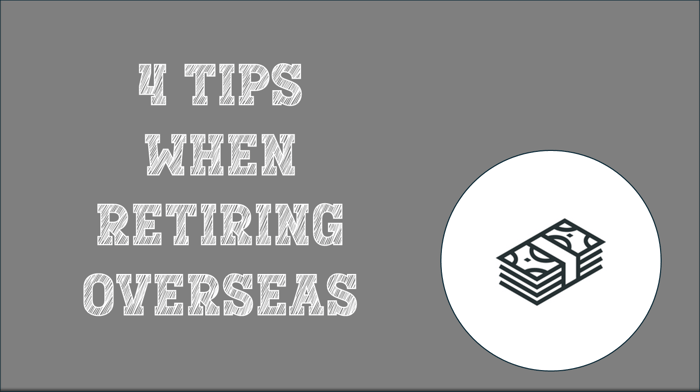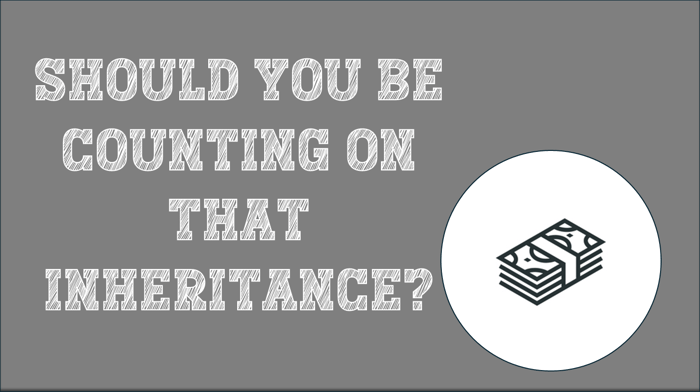What do you see when you think of your retirement? Do you picture yourself gazing upon the sunrise from a tropical beach each morning? Do you imagine yourself living in an idyllic countryside, or in a Spanish villa? If you answered yes to any of these questions, then you may be like the 500,000 Americans currently spending their retirement abroad.
There are several reasons people decide to spend their retirement outside the U.S.
The cost of living is typically lower abroad. One example is healthcare costs. Reports from expat retirees have shown that living as a retiree in the U.S. can be up to twice as expensive as compared to other countries. Other people enjoy the more traditional, relaxed lifestyles that can be found across the ocean. Reasons aside, retiring overseas is a fascinating prospect.
In this article, we’ll review the top 4 factors you should consider when planning to retire overseas.

4 Considerations Before Retiring Abroad
1. Your Fit – When you’re looking at living the rest of your life in a particular country or region, it’s important to be certain the location is a good fit for you. This advice might seem rather obvious, but many retirees who were initially confident in their decision to relocate regretted their choice of country later on.
There are several factors that can lead to post-immigration regret. Those factors include the locals’ attitude toward Americans, the different laws and how they apply to you, the climate, and conveniences or lack thereof. Keep in mind that places outside the U.S. may be limited in terms of shopping and amenities.
The best way to avoid post-immigration regret is to take a month or so to visit the country in question. An extended stay should give you an idea of what it would be like to live there on a permanent basis.
I recommend that you do your homework on the country and the area you’re considering moving to by reviewing a few international living sites.
2. Taxes – “If you are a U.S. citizen or resident alien, the rules for filing income, estate, and gift tax returns and paying estimated tax are generally the same whether you are in the United States or abroad. Your worldwide income is subject to U.S. income tax, regardless of where you reside.” – IRS.gov
If you visit the IRS U.S. Citizens and Resident Aliens Abroad web page, the above statement is the first paragraph. The statement touches on a controversial U.S. policy that very few citizens are familiar with: The citizenship-based taxation policy.
The U.S.A is one of two countries in the world that bases its tax system on citizenship rather than residency. Therefore, unless you’re planning on retiring to Eritrea, you will be filing two tax returns and (potentially) paying two countries’ taxes. Furthermore, the U.S. government requires expats to fill out extra tax forms each year even if they don’t earn a single dime. I recommend meeting with an international tax specialist before deciding on your new home abroad.
3. Keeping In Touch – If you’re like most retirees, you’ve built up a close network of family and friends over the years. If it’s important to you to stay connected to your network in the states, you’ll need to be comfortable with your new level of connection.
Unfortunately, moving overseas can make it more difficult to keep in touch with friends and family over the phone. You might consider looking into an internet calling service such as Skype or Euro Call. If you want to see your loved ones in person from time to time, you should also budget for the occasional trip back to the USA.
4. Managing Money – You’ll need to consider how you’ll manage your money while living in a foreign country. Most financial experts recommend that you keep most of your savings in federally-insured U.S. banks. However, your current bank might not be your best choice. A bank that rebates foreign ATM fees is ideal since you’re likely to use them fairly often. Schwab and TD Ameritrade are both good options.
Other financial considerations before moving abroad, include your choice of credit card and the financial rules of the area. For example, a credit card with a foreign transaction fee is not ideal for an expat retiree. You may also consider a card that offers travel rewards to help pay for visits back to the States.
If the location you’re moving to is primarily cash-centric, your local ATM card should be fine. Alternatively, if you find that your area is not cash-centric, then it might be best to open a local checking account. If you choose to open an account, be prepared for a lengthy in-person setup.
Conclusion
Living overseas can be delightful. You may find that you can live better and experience more in your retirement than you ever could back in the United States. However, you should remember that your choice to move abroad is akin to a serious investment. Once you’ve bought your new property and completed the legal paperwork, it will be difficult to move back. Therefore, I urge you to carefully discuss your plans with a financial advisor before finalizing your move abroad for your retirement.






